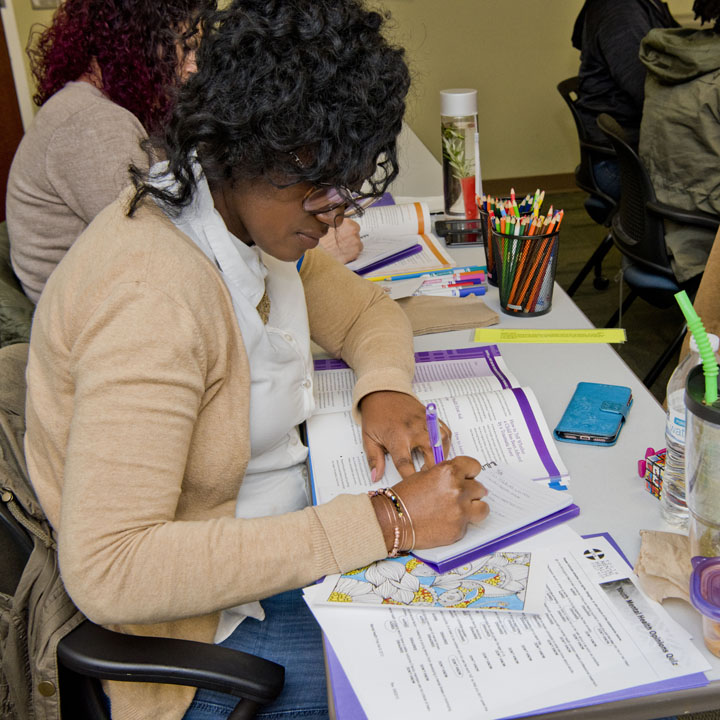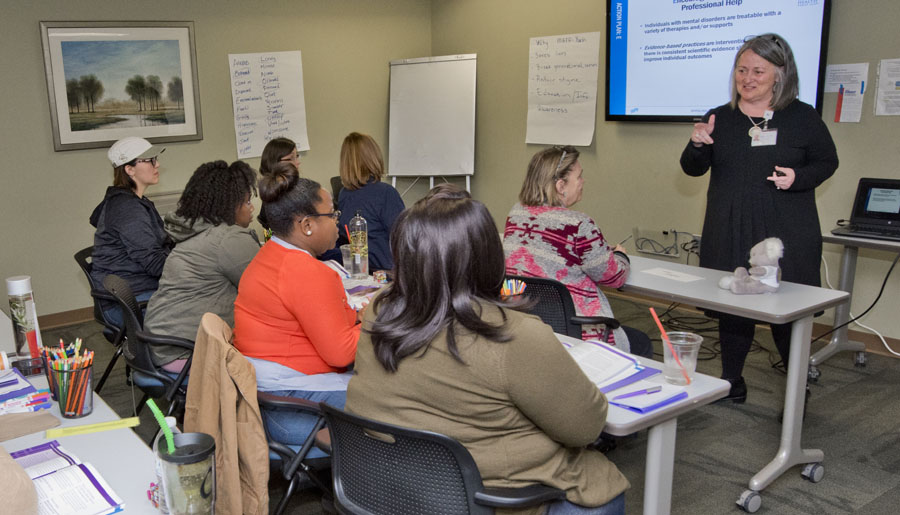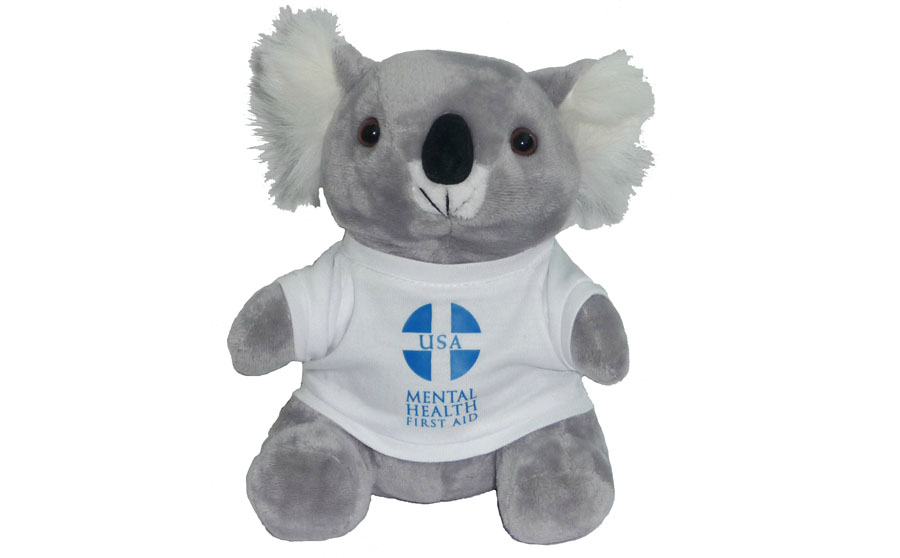
Mental Health First Aid
Simple, proven practices can help those in need
By Vanessa Infanzon | Photos by Ray Sepesy
Sneeze or cough, and a friend or family member responds with the offer of a tissue, throat lozenge or even the suggestion to see a doctor. Most people know how to extend help when a loved one has a physical ailment. And when the sickness or injury is more serious, schools, neighborhoods and faith communities may organize meals, child care or raise money to ease the family burden.
But when the condition is mental illness, the response may be different. Many don’t know what to do or say; it’s unfamiliar territory. If someone hasn’t encountered or experienced depression or an anxiety or substance-use disorder, the individual might not know how to react.

Knowing what to do doesn’t always come naturally. First responders such as police, fire and medics who encounter people with mental illness during their everyday calls receive training on how to respond to someone in a mental health crisis. The firefighters at Fire Station 32 on Bryant Farm Road recently participated in Mental Health First Aid (MHFA). Capt. Charles Horne says the MHFA training gave his firefighters the tools to recognize behavior traits that may be destructive and teaches them how to connect people to systems already in place in the community.
Free Program
MHFA is a free training program to help all people — from first responders to anyone in the community — learn about and understand seven of the most common mental health diagnoses, their signs and symptoms, the risk factors and steps to intervene.
Amy Rudisill, a south Charlotte resident, is the community engagement specialist with Cardinal Innovations Healthcare. She has seen how knowledge and understanding of mental illness can help build healthy communities. “MHFA can have a life-changing, positive impact on a person,” Rudisill says.
The MHFA program was developed in 2001 by a health education nurse and mental health literacy professor in Australia and has been adapted for programs in 25 other countries. In the United States, the program is coordinated through the National Council for Behavioral Health and more than one million people have been trained.
In 2015, Mental Health America of Central Carolinas (MHA) initiated a partnership with other organizations offering MHFA to the community. As a collaborative, MHA, Atrium Health, Novant Health and Cardinal Innovations coordinate training efforts and take on large-scale projects in the city and surrounding counties.
In the past two years, 2,040 community members have been trained through 100 classes in the greater Charlotte area. Charlotte-Mecklenburg Police Department officers, Mecklenburg County Sheriff’s Office sworn deputies and the Charlotte Fire Department (CFD) firefighters have participated in the eight-hour course.
MHFA’s curriculum uses the mnemonic device, ALGEE, to help class participants remember the five-step action plan. ALGEE is also the name of the MHFA program’s koala bear mascot. ALGEE stands for: Assess for risk of suicide or harm, Listen nonjudgmentally, Give reassurance and information, Encourage appropriate professional help and Encourage self- help and other support strategies.
The training includes videos, interactive activities and role playing to demonstrate how the material may be applied to real-life situations.

Breaking Stigmas
“MHFA breaks stigmas; it allows more people to be aware of what mental health really looks like,” says Ericka Ellis-Stewart, the education and advocacy program coordinator at MHA and an at-large member of the Charlotte-Mecklenburg school board.
Organizers hope participants leave MHFA training with an awareness of stigmas associated with mental illness, the ability to recognize when someone is dealing with a mental health problem or crisis and the confidence to connect people to resources. “We want people to understand the prevalence of mental health conditions,” Ellis-Stewart says. “One in five of us will experience a diagnosable mental health condition in any given year. We want people to understand that a mental health condition is just as debilitating, or more debilitating, than a physical health condition.”
Chris Davenport, a firefighter engineer with Ladder 32 was trained with the other 1,100 CFD firefighters this spring. He’s been at the firehouse for 16 of his 17 years of service. It’s not unusual for him to encounter people experiencing a mental health crisis when he goes out on a call. He’s excited to know how to direct people to the right community resources, and that his fellow firefighters do, too.
“It’s opened up all of our eyes,” Davenport says. “It will help us better serve our clientele and help us be more compassionate.”
“ALGEE” 5-Step Action Plan
- Assess for risk of suicide or harm
- Listen nonjudgmentally
- Give reassurance and information
- Encourage appropriate professional help
- Encourage self-help and other support strategies
Want More Info?
- Mental Health First Aid: www.mentalhealthfirstaid.org
- National Institute of Mental Health: www.nimh.nih.gov
- American Foundation for Suicide Prevention: www.afsp.org
- National Alliance on Mental Health: www.nami.org
Free MHFA Class at Sara’s Y
Ballantyne residents can attend a free Mental Health First Aid class at Sara’s YMCA, 15940 Brixham Hill Ave. The class is 8 a.m. to 5 p.m. on Monday, Sept. 24, and will be taught by Lisa Kolkmann, an Atrium Health instructor. Thirty seats are available and lunch is provided.
Sign up for the class at https://bit.ly/2rzLzr2. For more information, call 704-631-1000 or email mhfa@carolinashealthcare.org.


